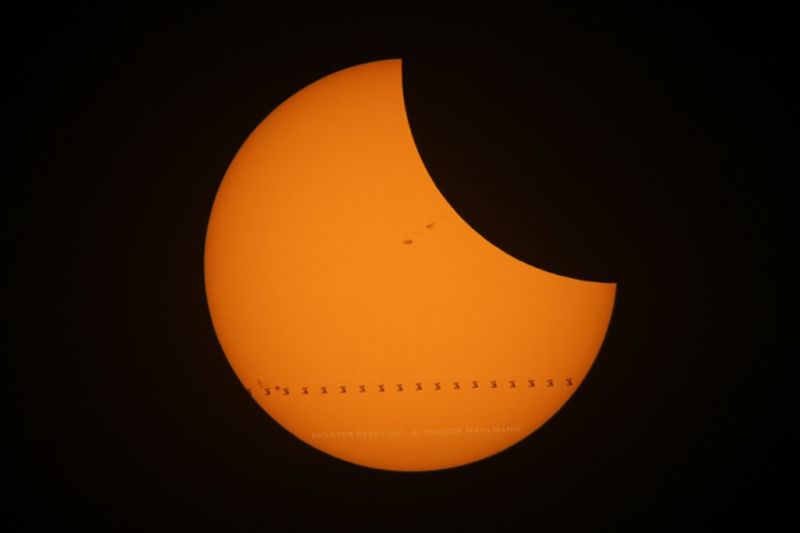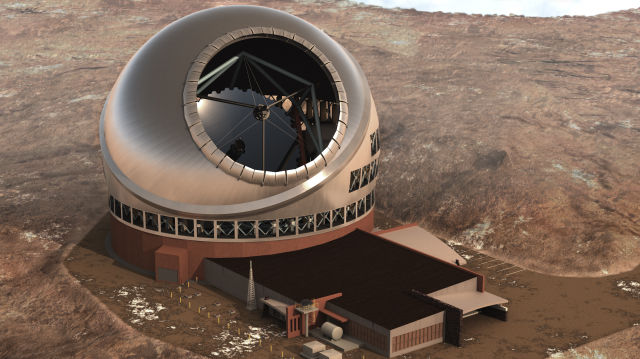
As much of the world has slowed down amid COVID-19, the same cannot be said for the burgeoning small satellite broadband industry. In recent weeks, SpaceX CEO Elon Musk announced he hopes to move the company’s Starlink broadband service to public beta in about six months. And that very same day, the Federal Communications Commission unanimously approved new rules for preventing orbital debris and collisions in space (those rules have been revised so as to not hamper NASA, but they still require more analysis, tracking, and disclosure from satellite companies). It’s a small snapshot of what’s been an ongoing debate: astronomy advocates say we are running out of time to preserve pristine views in the night sky, companies sending satellite constellations into space say they are mitigating the threat their satellites could pose to skywatchers.
The fleets of low-cost satellites will certainly be beneficial for telecommunications and Earth observation customers, particularly those living in remote areas. Crowds of satellites decrease the “revisit time” between satellite passes and make it easier to stay in touch, or to get frequent images during natural disasters.
Yet astronomers warn that without care, the satellites could ruin science observations and also make it difficult for groups like Native Americans who see the sky as part of their culture. Space organizations in Europe and the United States are already sounding alarm bells in reports and press releases. The European Southern Observatory (which operates the Very Large Telescope in Chile, among others) recently warned their observatories would be “moderately affected” if constellations launch at current rates. The National Science Foundation’s Vera C. Rubin Observatory in northern Chile said nearly every image obtained during twilight “would be affected by at least one satellite trail.”

Quantity
Before, these astronomical observatories could dodge Iridium flares and other bright satellites because machines were only occasional intruders into observatory views. Satellite constellations, however, are proving harder to avoid.
“Obviously, satellites are not new; they’ve been a presence in the sky for 60 years. But what has changed is the quantities we are talking about,” said John Barentine, director of public policy for the International Dark-Sky Association (IDA).
In March, IDA submitted a comment to the US Council on Environmental Quality regarding proposed changes to the National Environmental Policy Act (NEPA) implementing regulations, the first such changes since 1978. With the assistance of Chicago-based Mudd Law, IDA argues that the satellite constellations—like construction activities on Earth, for example—should undergo standard NEPA environmental assessments. To IDA, outer space needs protection, just like our planet. But it could be a long road to get that point of view accepted.
“We’re kind of operating in a wild west sort of space,” Barentine told Ars. Most of the global convention for space law devolves from the United Nations’ Outer Space Treaty of 1967, which he said was in large part constructed to avoid territorial claims on the moon—a target of US and Soviet space exploration at the time. The treaty was signed long before commercial claims could be imagined, since only big governments were playing in space at the time.
That said, Barentine pointed to more recent actions by the Trump administration that he says supports IDA’s argument to tighten environmental restrictions where possible, to serve as a control on actions the Trump administration says are meant primarily to serve business.
In early April, for example, US President Donald Trump signed an executive order to support using lunar resources for eventual moon settlements. Trump’s actions are in line with previous presidential administrations. The United States has not signed the 1979 UN Moon Agreement that heavily restricts non-scientific use of resources in space. Additionally, Congress passed a law in 2015 supporting American companies in their bid to mine the moon, as well as asteroids, for human activities.
“The executive order tipped its [the US government’s] hand in terms of how it thinks of space … that it’s the policy of the United States that space is not a global common,” Barentine said. “If space is not a global common, and for each individual country to exploit, under the obligations of the United States treaty there is no liability on the impacts of astronomy, the impacts of the night sky, and the cultural implications around that.”
https://arstechnica.com/?p=1676356

